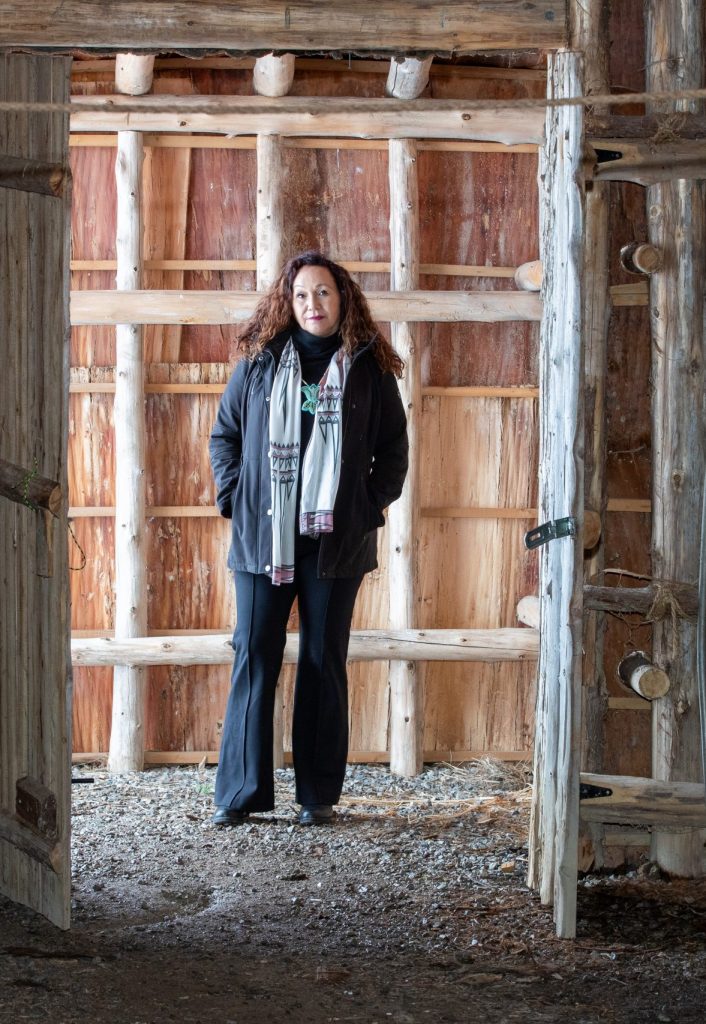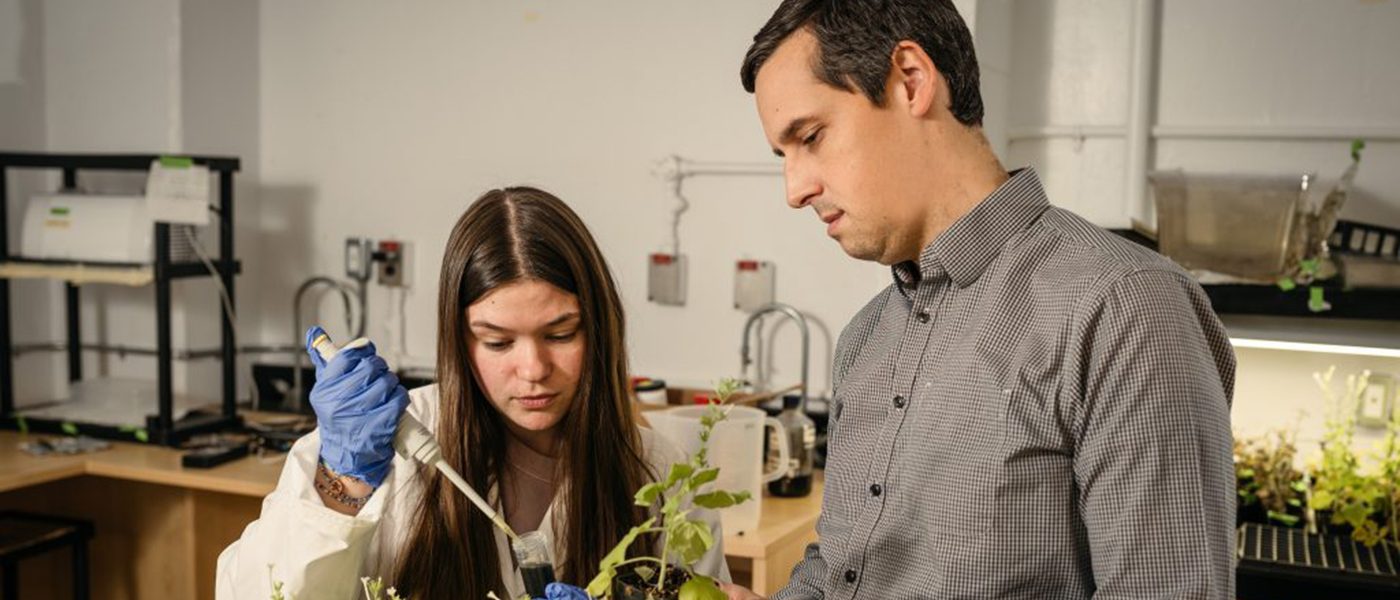
McMaster is committed to supporting sustainable research, teaching and learning. We are pleased to share highlights from new McMaster research that addresses big sustainability challenges. We also share examples of how our students have been active partners in developing a living laboratory for sustainability on campus during the 2022/23 academic year.
SPOTLIGHT: Protecting the environment through Indigenous knowledge and western science
Dawn Martin-Hill, professor in the Indigenous Studies and Anthropology departments says by looking at a satellite view on Google Maps one can easily find the Six Nations of the Grand River — just look for the intact forest. For Martin-Hill, that preservation of the old-growth Carolinian forest shows how the Indigenous community of the Six Nations knows how to treat the land with care.
Through her work with the Ohneganos water research project, she is advocating for Indigenous knowledge to be used alongside western science to protect the environment.
Martin-Hill attended the UN Water Conference in March 2023 to promote the use of Indigenous and western ways of knowing to tackle water security issues in Six Nations of the Grand River.
“We’re hoping to forge a new path, using western and Indigenous knowledge systems,” she said. “The UN is starting to realize how valuable Indigenous knowledge can be, but they’re unsure how to fit that into the existing frameworks.”
And there’s a definite sense of urgency in protecting the environment around Six Nations of the Grand River.
Highlighting the damage done to the section of the Grand River which flows through the community, Martin-Hill showed drone footage of the river, showing the sludge coming in from 25 wastewater plants upstream.
As part of the Ohneganos project, the team is trying to provide water-quality sensors to the community to monitor the water for chemicals.
Another part of the project also used a Household Water Insecurity Experiences (HWISE) survey to see the scale of water insecurity on Six Nations.
Martin-Hill says this was the first time the HWISE had been used in a developed country, since it’s a tool typically used in the Global South. But the results, which parallel those found in developing countries, show Six Nations, a community only half an hour from Hamilton, is significantly water-stressed, she says.
The HWISE survey showed that 58 per cent of the Six Nations households surveyed had moderate to extreme water insecurity, to the point where families worry about flushing the toilet because they may not have enough water.
By speaking at events like this one, the team at Ohneganos hope to highlight the urgent need to take action to improve water security at Six Nations.

Information Box Group

Sustainable Research: Small Modular Reactors Read More
McMaster entered into a partnership with the Ultra Safe Nuclear Corporation and Global First Power to advance research in Small Modular Reactors (SMRs), a clean energy technology that could play an essential role in Canada’s Net Zero by 2050 goal. The partnership involves examining the feasibility of deploying a Micro Modular Reactor at McMaster University, helping pave the way for Canadian communities considering the adoption of this new approach to greenhouse gas free energy.
Interdisciplinary Learning: Hands-on experience in nuclear research Read the whole story here
During the summer of 2023, 12 undergraduate students participated in a new program from the Canadian Nuclear Laboratories (CNL), where they conducted nuclear research in cutting-edge facilities and worked with leading academic and industry experts. This eight-week Nuclear Undergraduate Research Experience Program engaged students from the faculties of Science and Engineering to gain hands-on experience working with CNL researchers and staff, as well as with McMaster researchers working with our Nuclear Reactor.
Digital Learning and Environment: ARTEMIS improves climate change model accuracy Read more on McMaster's Daily News
McMaster researcher Andrew Gadsden and his team of experts have worked with NASA to build an autonomous, robotic telescope mount to help create more accurate climate change models. The first-generation robotic mount — named ARTEMIS, short for the Autonomous, Robotic TElescope Mount Instrument Subsystem — was designed to ensure the telescope stays trained on the Moon while in motion. The airborne lunar spectral irradiance mission — air-LUSI —will send a telescope into high-altitude flight to measure reflected moonlight with unprecedented accuracy.

Campus as a Living Laboratory: Storing and reusing excess heat Read the full story on McMaster's Daily News
Co-founded by mechanical engineering professor James Cotton and research lab manager at the McMaster Institute for Energy Studies, Jeffrey Girard, HARvEST aims to capture excess heat generated as a by-product of industry and redistribute or repurpose that heat to where it is needed.
To prove the HARvEST concept, Cotton and Girard established a research facility on campus that allows for a full-scale implementation of this technology. The Research Facility for Integrated Building Energy Harvesting Systems provides the means to validate the processes behind HARvEST and can also heat, cool and power the Gerald Hatch Centre.
Recently, they collaborated with Pizza Pizza Limited and Thermal Electronics Corporation to successfully demonstrate HARvEST in three Ontario Pizza Pizza restaurants. The system captures waste heat from cooking appliances to offset energy consumption in other restaurant operations. Implementing this technology can support the decarbonization of the restaurant industry by providing a fuel-less, carbon-free hot water heating system.

